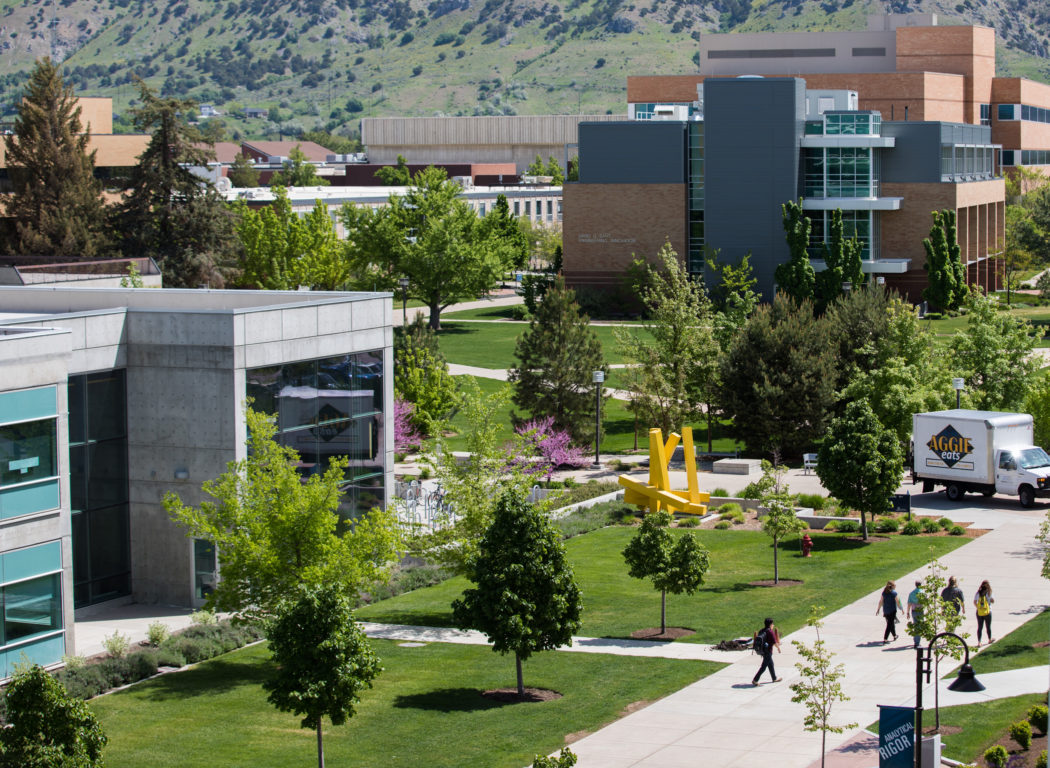Summer break’s effects on education
Thousands of students take an extended break from school during the summer months. Is this a good thing or a bad thing for their education?
Traditional school systems and year-round schools both have students attend about 180 days of classes, the days are just split up differently.
Traditionally, students take a long break during the summer months between two 90-day sessions when classes are held. Year-round classes often have shorter, more frequent breaks during the 180-day school session.
At Utah State University, students who do not choose to enroll in summer semester classes have about 18 weeks, (or about 126 days) off between spring and fall semesters.
The reason why most students in the US get anywhere from five weeks to three months of vacation during the summer is unclear.
One theory, according to the Center for Educational Improvement, suggests that before air conditioning was widely available in the US, it was often too hot to continue classes during the summer months.
Oftentimes, it is assumed that school was not held during summer months so agriculture workers could take time off to care for and harvest crops, said Ida Lieszkovskzy of National Public Radio.
This theory is incorrect, Lieszkovskzy said. Crops are planted in the spring and harvested in the fall. Instead, the summer break may be rooted in urban culture, not agriculture.
Historically, agriculture schools would actually take breaks during spring and fall, and have classes during summer and winter, according to Chris Weller of Business Insider.
In cities, when the heat started to rise, middle to lower class families would often summer in cooler places, making classes inconvenient for children. Therefore, parents repealed summer classes in order to have longer summers away from the heat of the city.
Year-round schools in the United States are not as common as traditional schools, but are growing in popularity as both parents and politicians push for less time off for students.
One of the benefits to year-round school is less burnout on students.
In the PBS documentary The Principal Story, a year-round elementary school principal Beth Sturgill said, “the longer breaks in the fall and spring help everyone feel less burnt out throughout the year. This is important for at-risk students who are more likely to drop out of school and often benefit from the review or the ‘catching up’ that happens in summer sessions.
College students often feel the same way, according to Pat Garofalo of U.S. News.
“I would like more breaks spread throughout the year,” said Joseph Price, a sophomore at Utah State University. “I feel like I would feel less burned out if I had three weeks of class then a week of break.”
One long summer break is also not what working Americans actually have once they are out of school, according to Weller. Most Americans get less than 10 vacation days, so a long summer break does not reflect what college-age students will experience once they graduate.
There are also many benefits to traditional schooling, with a long break in between semesters, including time for professional development, said Heather Longfield, an undergraduate teaching fellow at USU.
“The summer is a time that I plan for my classes for the next year and attend many teaching seminars along with the professors I assist,” Longfield said “A lot of people don’t realize that summer is actually a really busy time for teachers. They don’t always get those months off.”
While some may suggest that during the summer break students often forget what they have learned in the past few months, according to Peter Gray of Psychology Today, if students forget what they have been taught most recently, it means it was not taught well.
The idea that students forget a lot of their class material in the first few weeks of break, also known as a “summer slide,” was the subject of Louise Turner and Laura Tse’s research. They have proven that with some targeted activities throughout the summer, students are less likely to forget class material, even during long breaks between classes.
“I don’t feel I forget what I have just learned in the three-ish months we have off in the summer,” saaid Elise Peterson, a senior at USU. “In fact, I feel like the summer is a great time to have all that we are learning actually sink in and I have time to actually think about my classes.”
There are both benefits and drawbacks to traditional schooling and year-round schooling, each highly dependent on the student.
“I think year-round school and the normal, traditional school system are simply different-timed classes. Same information, just at different times,” said USU freshman Jacob Smalls.
“I think everyone just needs to do what works best for their education. That is why the freedom of taking a summer semester is so nice,” he said.
— brianne.sorensen@aggiemail.usu.edu
@SorensenBrianne

